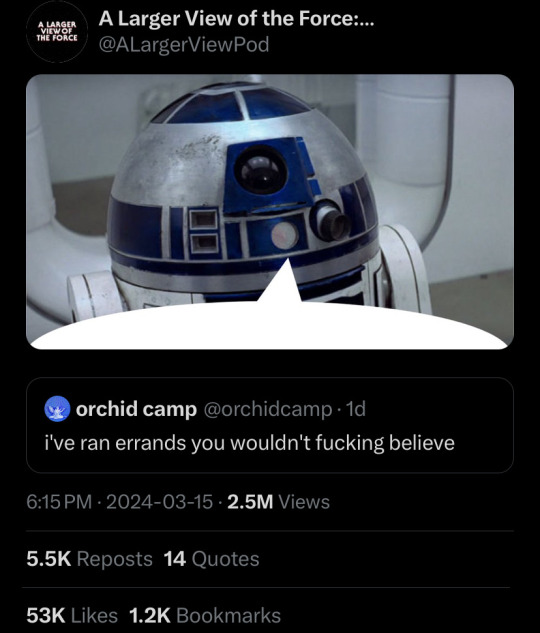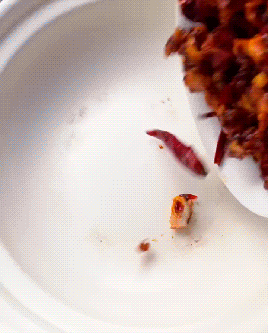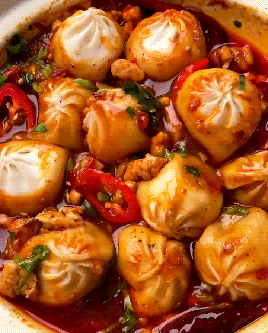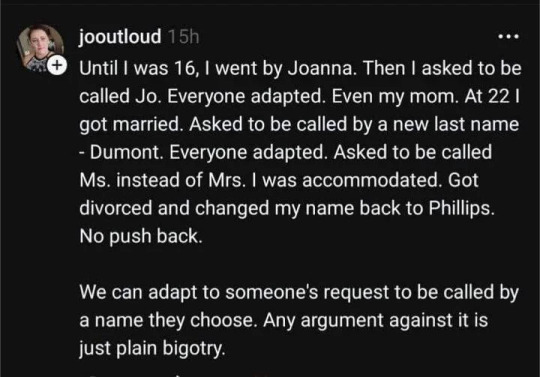Text
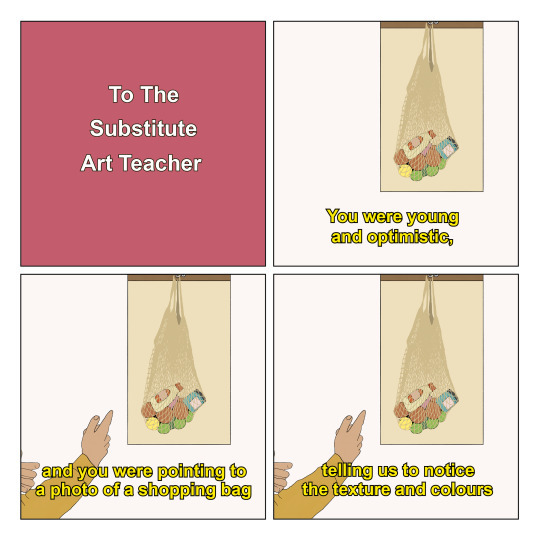
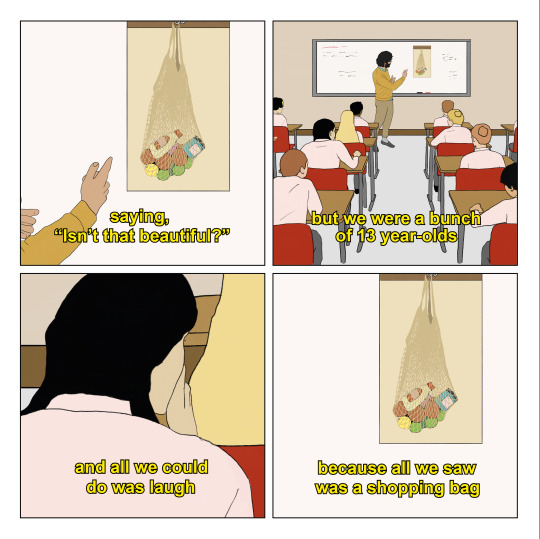
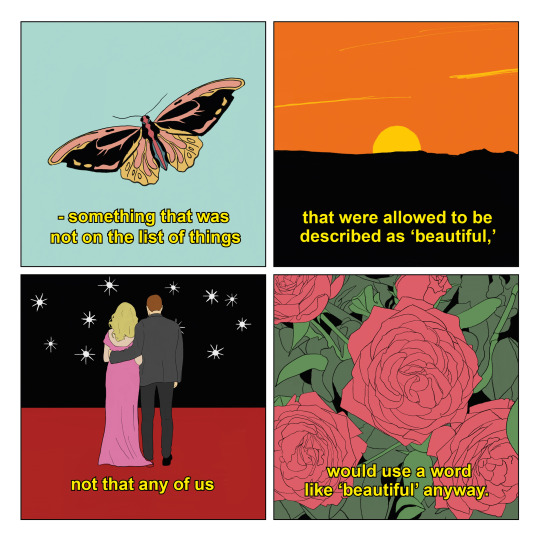
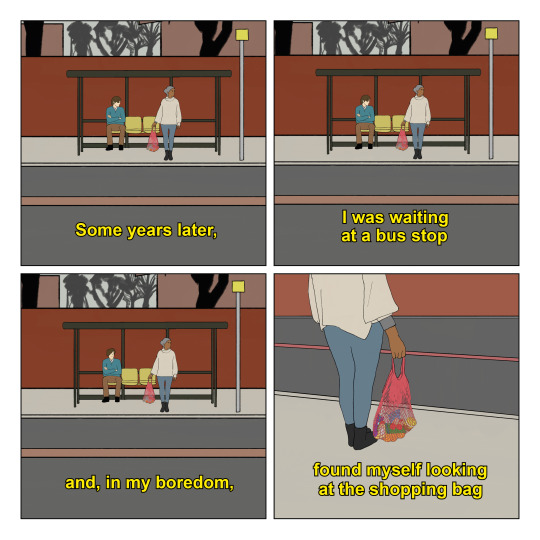
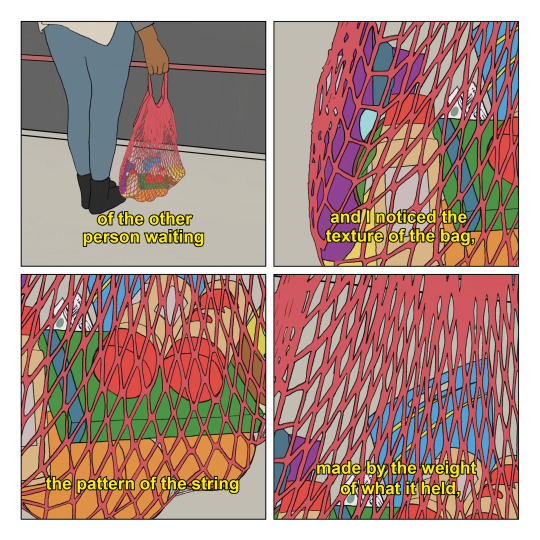
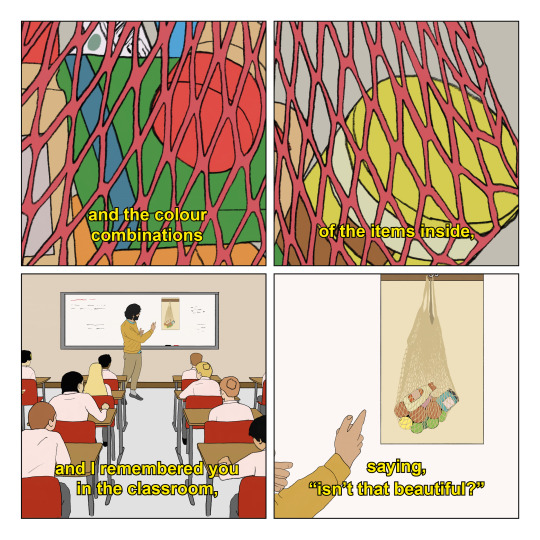
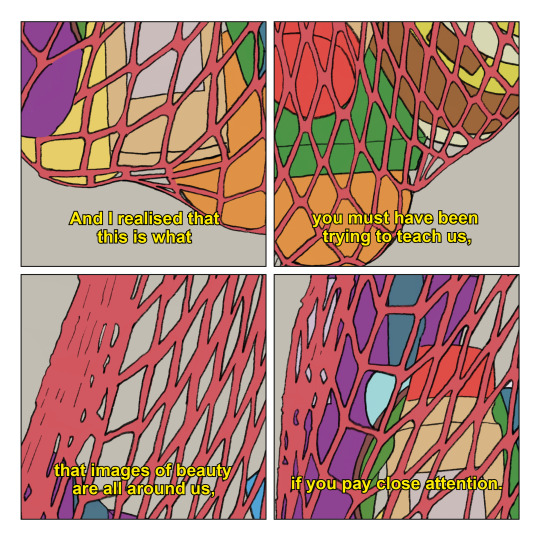


To The Substitute Art Teacher - Jordan Bolton
208K notes
·
View notes
Text
More favourite tropes:
“Unfortunately, [thing that would ordinarily be described in much stronger terms than ‘unfortunate’].”
“Fortunately, [thing that is in no way fortunate].”
“Unfortunately, [thing that would be fortunate in nearly any circumstance except the particular circumstance at hand].“
“Fortunately, [very minor benefit that absolutely does not offset the considerable drawbacks of whatever just happened].“
“Unfortunately, [the exact, word-for-word thing that somebody just expressed that they hope won’t happen].“
“Fortunately, [complete non sequitur].”
101K notes
·
View notes
Text
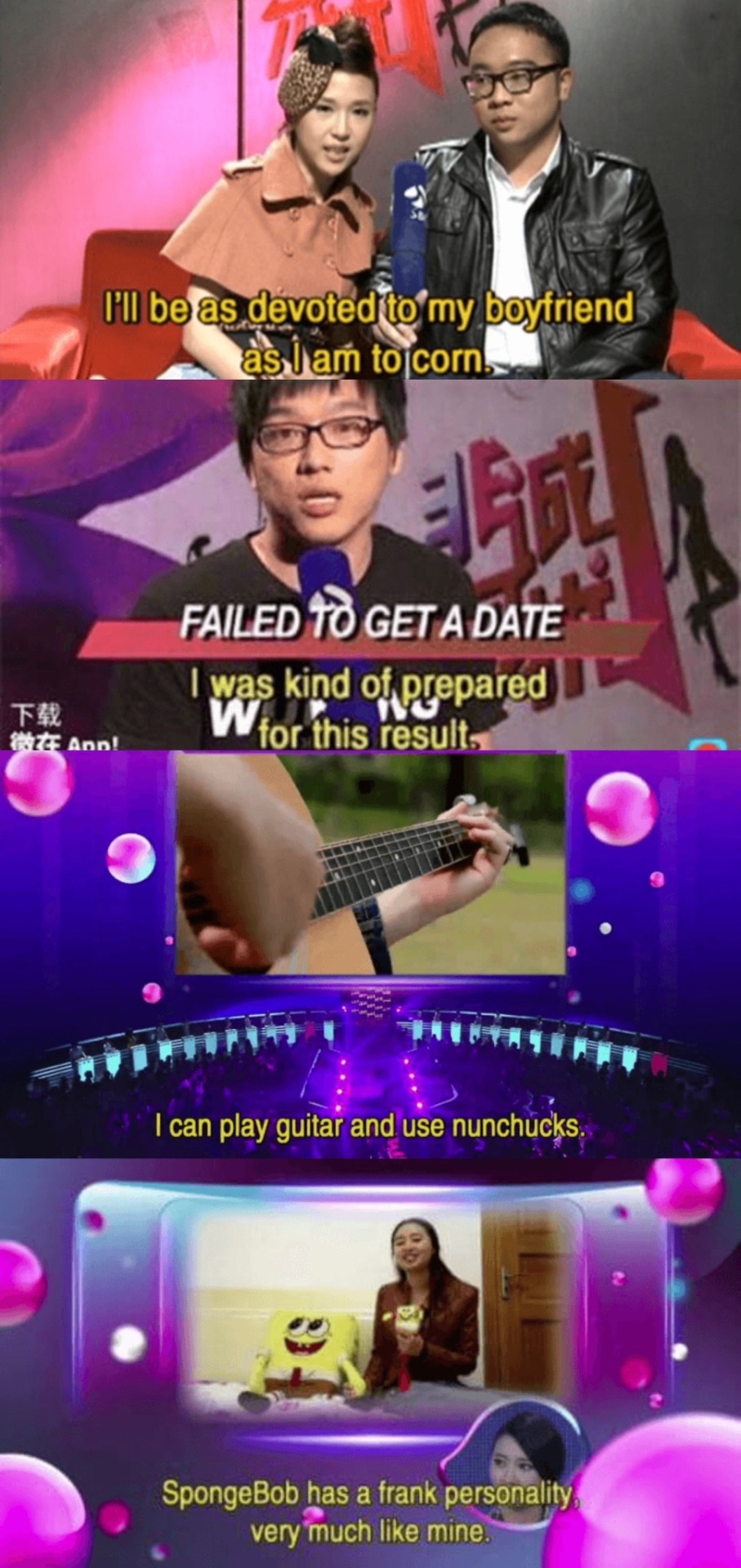

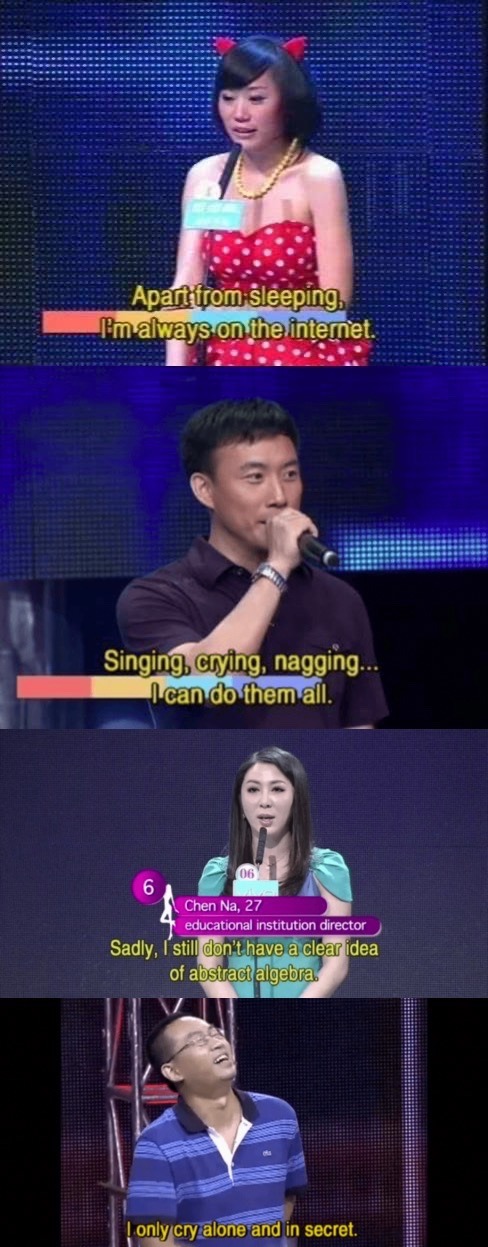

From the Chinese dating game show 非诚勿扰 (Fei Cheng Wu Rao), If You Are The One.
86K notes
·
View notes
Text
Magic and Genetics
So, this is not like 100% finished and will be more musings than a full theory. The main reason is that we, as humanity, just don't really know that much about genetics. Like, we get the gist of it, but we can mostly only say: "it's complicated" about it.
Which is true. Like, the idea of dominant and recessive traits the way most people are familiar with (like the eye color chart for blue eyes and brown eyes) is super oversimplified and inaccurate. Like, there are 2 major genes that affect eye color and then there are 8 more genes that affect eye color, hair color, and skin color, but we aren't really sure in what way. We just think they do from observation. Usually, genes behave in a way that is in line with the dominant and recessive traits charts, but there are exceptions to it. Again, we just don't know much about this field.
Because of this, I can't really come to conclusive conclusions regarding exactly how many and which genes affect a person's magic in the world of Harry Potter. What I can do is use the book evidence to try and create a pattern of how magic behaves genetically.
Disclaimer: I'm not a doctor, nor did I study genetics in any professional capacity, this is from online reading and self-study. And most importantly for fun 😊
Why do I think magic is influenced by multiple genes?
So, JKR stated in an interview she thinks of magic as a single dominant gene. This is impossible, since if that were true squibs and muggleborns wouldn't exist and the chart for the likelihood of a child being born with magic would look like this:

And that's just not what we see in the books...
This is all without mentioning how squibs like Arabella Figg can see dementors while muggles can't:
“A Squib, eh?” said Fudge, eyeing her suspiciously. “We’ll be checking that. You’ll leave details of your parentage with my assistant, Weasley. Incidentally, can Squibs see dementors?” he added, looking left and right along the bench where he sat.
“Yes, we can!” said Mrs. Figg indignantly.
(OotP, page 143)
This means that squids do have some magical genes that muggles don't.
Additionally, from what we know about wizards as a species they have other differences from muggles that would effect their genetics in less obvious ways, for example:
Wizards heal faster, so cell regeneration is different than muggles.
Wizards have a completely different set of illnesses than muggles, so their white blood cells are also different.
Their brain cells likely live longer since they have an overall longer life expectancy.
Since they can see magic, like dementors and the Leakey Cauldron, we know the sight receptors are different.
Their nerves likely also function differently since they can sense magic in a way muggles can't.
To name a few.
And this is all without going into the fact wizards can reproduce with other species (goblins, veela, and giants to name a few) which actually implies a common ancestor to all of these races, but I'm not going into that can of worms.
What I am going into is how magic works genetically and how predictable it is. As in, if I know the magical status (pure-blood wizard, half-blood wizard, muggleborn wizard, squib, or muggle) of two human parents, can I tell how likely their child is to be a wizard, a squib, or a muggle?
What are squibs?
We don't know of many squibs in the books, these are the list of the known squibs:
Argus Filch
Arabella Figg
Marius Black
Dolores Umbridge's brother
Molly Weasley's second cousin
Squibs aren't a subject wizards like talking about, even not wizards who don't mind muggles like the Weasleys:
"Er — yes, I think so. I think Mum's got a second cousin who's an accountant, but we never talk about him."
(PS, page 73)
The definition of a squib is a child without magic born of a magical parent. If we look at the list of squibs above, all of them except Umbridge's brother are pure-bloods. This is kind of important because of the limited genetic pool of pure-bloods.
I tried calculating the inbreeding coefficient (basically how likely it is that a specific genetic trait is identical in both parents. The number ranges between 0 and 1) of the pure-bloods in the Wizarding World. We don't have much information on most families, but even looking at the Black family tree, they aren't really inbred (except the Gaunts). The closest relation there is the marriage between second cousins Walburga and Orion. So the inbreeding coefficient of pure-bloods would be above zero, but not high enough to cause serious health detriments for the most part. But, this doesn't mean wizards don't have a problem with a limited genetic pool even without close inbreeding.
Looking at that same Black family tree, we see a lot of familiar names: Flint, Crabbe, Burke, Potter, Crouch, Longbottom, Weasley, Prewett, Malfoy, McMillian... Basically, all pure-blood wizards are related. Some more closely than others, but they are all related. It means that among pure-bloods there is less genetic diversity which tends to cause illnesses and weakness in children over the course of multiple generations.
Such illness can, for example, come in the form of a squib. If the child just isn't capable of having full access to magic, due to their limited genetic pool, they will be born a squib.
But what about Umbridge's brother?
Well, here's the interesting thing. When looking at accounts of children of a pure-blood and a muggleborn, they are all always magical (and usually quite powerful, but more on that later). Umbridge's mother though is muggle. I believe a muggle parent would also have a higher chance of a squib offspring since they don't have magic. Essentially, Umbride's brother received some of the magical genes from their father, and some muggle genes from their mother, leaving him somewhat capable of interacting with magic, but not casting it — a squib.
Essentially squibs have a higher chance to be born from two pure-bloods (due to lack of genetic diversity) or from a wizard and a muggle. If we look at the books, we actually never see a squib being born from a pair of two wizards where one of the parents is half-blood or muggleborn (since they bring new genetic diversity and make the offsprings much likelier to be magical).
What are muggleborns?
So, we covered that squibs are rare and are caused by the lack of genetic diversity in the pure-blood families or by receiving non-magical genes from a muggle parent. But what about muggleborns? How could they genetically exist?
Well, I discussed here the actual percentages of different blood statuses across the Wizarding World. And the percentages looked like this:
57.5% Pure-Blood and Most Likely Pure Blood
22.5% Half-Blood
15% At Least One Magical Parent
5% Muggleborn
And as I covered here and here, I believe magical Britain is approximately 0.01% of the muggle population. This means that muggleborns are incredibly rare in the muggle population and have an overall very low chance of being born. But under what circumstances would muggleborns be more likely?
We know, for example, that the brothers Colin and Dennis Creevey were both born magical. It means, that their parents had genes that make them more likely to have magical children. This means Petunia had a higher chance of being born magical than, say, Vernon, it was still a low chance, but it was more likely.
Now, I'm not the first to raise this theory, but I believe these muggles that have a slightly higher chance for magical children like Mr. and Mrs. Creevey are descendants of squibs. We know that:
"Squibs were usually shipped off to Muggle schools and encouraged to integrate into the Muggle community. . . much kinder than trying to find them a place in the Wizarding world, where they must always be second class..."
(DH, page 136)
So, squibs have been sent for generations to live among muggles. It means that there are multiple "muggles" running around that are actually squibs. They might be able to see dementors or notice something odd around the Leakey Cauldron, but not enough to produce magic. But they still have magic in their genes. And when they have kids, sometimes, through a fluke of luck and genetics a muggleborn can be born.
This means all muggleborns are distantly related to wizards in some way, but still the muggle blood adds some much-needed genetic diversity that makes them less likely to have squib children.
What would magical genes look like?
So, we talked so far about how to predict the likelihood of a child having magic or not. But we also know not all wizards and witches are magically equal. You have crazy powerful individuals like Voldemort, Harry, and Dumbledore. Hermione is an incredibly skilled and talented witch, often the first in class to get spells right. And then you have wizards like Crabbe, Goyle, or Merope who are barely more magical than squibs. Then you have unique magical gifts like being a parselmouth, metamorphmagus, or seer are all inherited, and therefore genetic.
So, let's start with the power/talent difference between wizards that we see. I think this, like squibs, is correlating to the lack of genetic diversity. Sure, you have pure-bloods that are magically powerful or average, but if we look at the most magically powerful wizards in the books — Harry, Voldemort, and Dumbledore — they are all half-bloods. They all have a higher genetic diversity.
Hermione and Lily, are also examples of this added genetic diversity raising the likelihood of magical talent. Both muggleborns, both referenced as talented and bright multiple times. Snape, another half-blood is also referenced often as an incredibly talented wizard.
Actually, Nymphadora Tonks is one of the best pieces of evidence for magic weakening over pure-blood generations and becoming stronger with the new blood from muggles or muggleborns.
The Black family had the hereditary magical gift of being metamorphmagi. This gift has been lost for multiple generations, the first Black to be born with this gift in recent history is Tonks. And it makes perfect sense, Andromeda, a pure-blood with the genes for being a metamorphmagus, marries a muggleborn, Ted, who has the much-needed genetic diversity, so their daughter is finally durable enough for the metamorphmagi magic to kick in.
The Gaunts are another example of just how much the lack of genetic diversity affects a wizard's magic. All three, but especially Mereope, are portrayed as barely skilled with magic, almost squibs. But then we have Tom Marvolo Riddle, magically gifted so much beyond most wizards because he had the added genetic diversity from his muggle father.
Parseltongue seems to be a more dominant trait than the metamorphmagus ability. As even an almost squib in the Gaunt family can speak it. That being said, the Gaunts are implied to be incredibly incestuous, so perhaps it's just a matter of both parents speaking Parseltongue that causes this gene's apparent dominance.
We also know these genetic traits are only passed to wizards. So a squib from the Gaunt family, would not be able to speak Parseltongue. So, while it is a separate gene, it is connected to the other genes that affect magic. That's why a muggleborn born from a Gaunt family squib line, could potentially be a Parselmouth. They won't necessarily be a Parselmouth, but they have a chance to get the gene.
Conclusions
So, let's put all of it together into a series of rules* to how magic seems to work genetically.
*Rules is not exactly the correct word. It's more like, how it would usually behave, but there are flukes to genetics and everything is possible.
Two magical parents would almost always have a magical child. Pure-bloods are more likely to have squib children than half-bloods or muggleborns due to lack of genetic diversity.
A child of a muggle and a wizard has a higher chance of being born a squib than two magical parents. (The chance is still pretty low though and the child is more likely to be magical)
Muggleborns are the result of at least one parent who is a muggle that descended from squibs and has magical genes.
If both parents are squib-descendant muggles, all their kids might even end up magical. (Like the Creevey brothers)
Being a parselmouth, metamorphmagus, or seer are all unique genetic traits that are passed in a separate gene but dependent on other magical genes. Each one of them behaves differently as a gene.
Genetic diversity promises a higher chance of naturally magically gifted children. (It doesn't promise they will be more gifted, just makes their chances better)
Blood purity and a limited genetic pool cause magical children born to these lines to be overall weaker. (Again, there are exceptions, this is just about chances)
58 notes
·
View notes
Text
i love how hermione has such a rule following aura that everyone ignores that she is the real rule breaker of the trio. harry sneaks out at night sometimes. hermione straight up kidnapped a whole woman and held her prisoner in an enchanted jar. even tom riddle didn't do that.
568 notes
·
View notes
Text

kind of obsessed with this security question option my doctors office has given me
37K notes
·
View notes
Text
one thing about me is I love brutalism. I love concrete. I love not living in a house with cardboard walls and I love looking at a building and thinking this imposing boy would survive a nuclear war
66K notes
·
View notes
Text
Anyway here’s a poem I wrote about my cat
After “Do not stand at my grave and weep”, author disputed:
Do not stand at your bowl and meow.
I gave you food. It’s in there now.
I feed you at the dawning light,
I feed you at the fall of night.
I feed you kibbles mixed with meat
And wet food for a special treat.
I feed you even though you scoff
At all the food within your trough.
I feed you and still yet you yell
Like as a beast from deepest hell.
Do not stand at your bowl and cry.
I gave you food. You will not die.
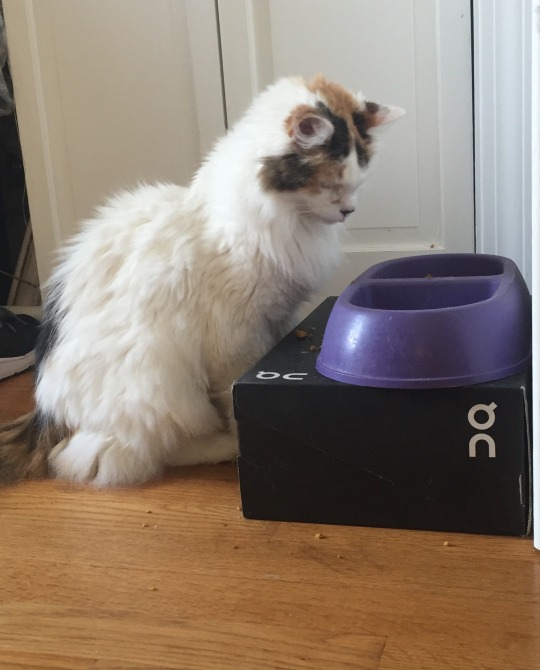
57K notes
·
View notes
Text
Correction: He doesn't understand something about risk everybody else does.

What makes this even funnier is if you’re a rich guy and do this the actual poker players will shower you with praise and stroke your ego (especially when you win hands through sheer variance) and say you’re great and to keep doing what you’re doing because they’re just siphoning money from you and want you to keep it up. Like, that’s the original definition of a “whale” in the gambling sense
48K notes
·
View notes
